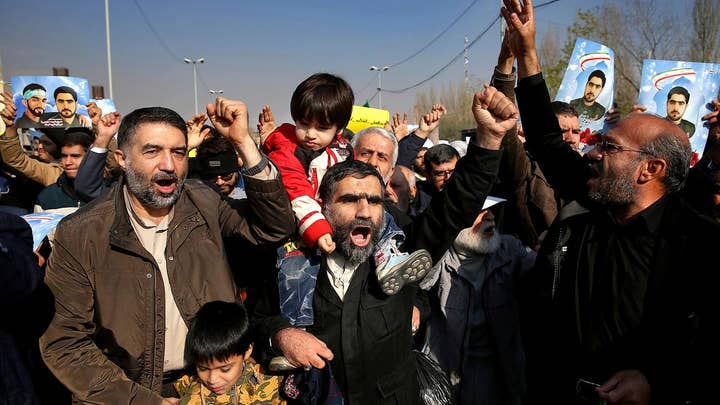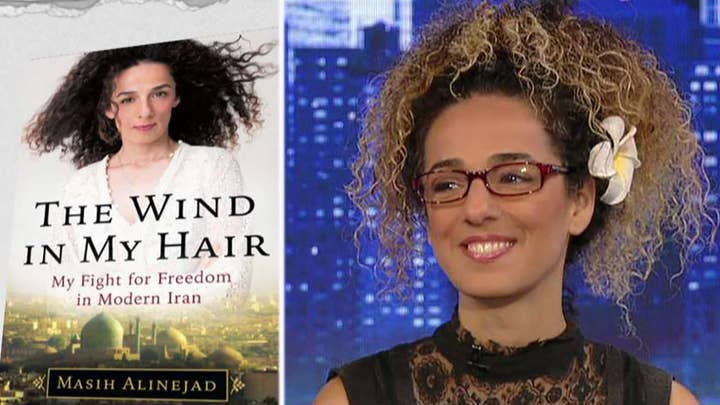
In this Nov. 1, 2008 photo, Iranian human rights lawyer Nasrin Sotoudeh, poses for a photograph in her office in Tehran, Iran. On Wednesday, March 6, 2019, the New York-based Center for Human Rights in Iran, said Sotoudeh, a prominent human rights lawyer in Iran who defended women protesting against the Islamic Republic's mandatory headscarf, has been convicted and faces years in prison. (AP Photo/Arash Ashourinia)
A prominent Iranian human rights lawyer has been convicted and faces years in prison after defending protesters against the Islamic Republic’s mandatory headscarves for women.
Nasrin Sotoudeh, 55, was convicted in absentia after refusing to attend a trial at Tehran’s Revolutionary Court, which deals with alleged threats to Iran’s government, in protest because she was unable to select her own counsel, Hadi Ghaemi, the executive director of the New York-based Center for Human Rights in Iran said on Wednesday.
WOMAN SHOWING HAIR UNDER HEADSCARF ASSAULTED BY IRAN'S MORALITY POLICE
The charges against the lawyer ranged from her membership to a human rights group to “encouraging corruption and prostitution,” a wording that indicates her defense of women protesting against mandatory hijab is connected to the charges.
Sotoudeh is a prominent lawyer who was awarded the prestigious Sakharov Prize for Freedom of Thought by the European Union in 2012.
One of her clients in the hijab protests, a movement that has been rocking Iran, received a 20-year prison sentence as Iranian authorities started to crack down on the progressive movement and suppress activists.
IRANIAN WOMAN IN ICONIC VIDEO FEARED TO HAVE BEEN ARRESTED AFTER WAVING HIJAB ON A STICK
The conviction wasn’t reported in the Iranian state media. The human rights group said it relies on Sotoudeh’s husband Reza Khandan for information on her case. The husband is also facing a six-year prison sentence for providing updated on the case on social media, Ghaemi said.
The hijab and chador – an article of loose-fitting clothing – was brought back by Ayatollah Ruhollah Khomeini following the 1979 Islamic Revolution, calling the chador “the flag of the revolution.”
Yet many women in Iran began to bend the rules and started wearing tight clothes with scarf only loosely covering their head, annoying the fundamentalists in the country.
CLICK HERE TO GET THE FOX NEWS APP
The protests against the mandatory hijab began in 2017 when women began circulating videos of them walking in the streets without hijabs.
The Associated Press contributed to this report.


